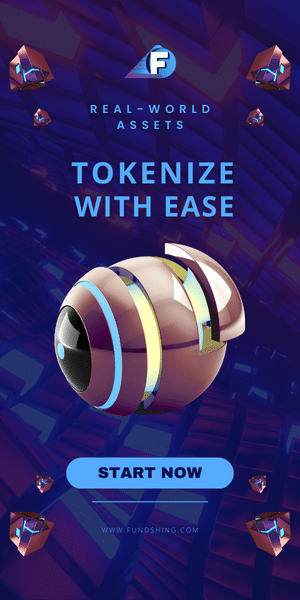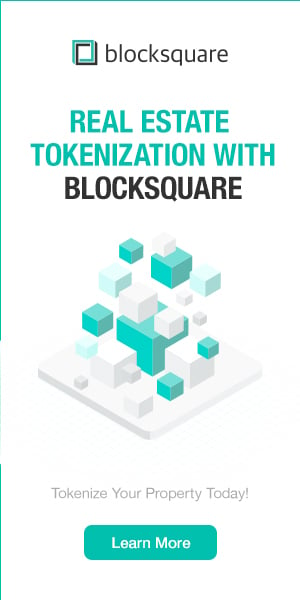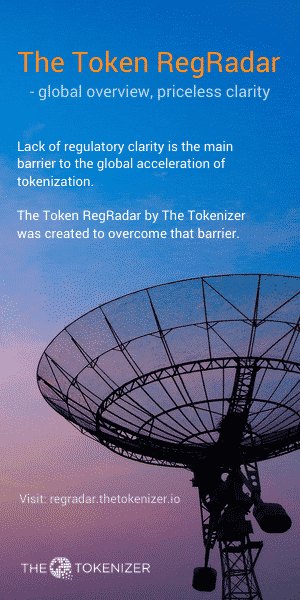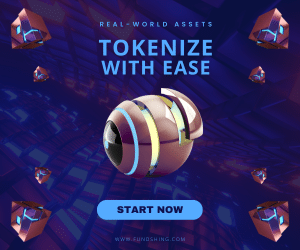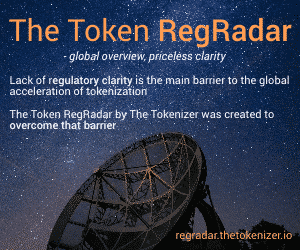Navigating the Evolving Landscape of Digital Asset Regulation in the USA: 2024 Update
We recently released the our second edition of the annual ‘Who’s Who Guide’ for 2024, a comprehensive report aiming to map out the entire real world asset tokenization ecosystem. The 2024 edition lists all they key categories of players in the industry while taking notice of the recent trend of institutional adoption, additionally the report includes various articles diving into prominent topics in the space and we’d like to share those with you. You can view the entire report and download your free copy here.
The United States has been a crucible of regulatory activity in the digital asset space, with 2024 marking a year of significant developments. This article aims to shed light on and provide an in-depth look at the latest regulatory initiatives related to digital assets, cryptocurrencies, and asset tokenization, offering insights into their potential impact.

A Push for Clarity & Innovation
In February 2024, the Office of the Comptroller of the Currency (“OCC”) organized a symposium focused on the tokenization of real-world assets and liabilities. The symposium, which was held in Washington, D.C., consisted of 5 panels which covered the topics: legal foundations for digital asset tokens, a review of academic papers on tokenization, a discussion with various federal regulators, a tokenization use case discussion, and a panel discussion on risk management and controls. Key takeaways from the symposium include:
1. Defining Tokenization: Tokenization is the process of digitally representing an asset, ownership, or liability on a programmable platform. It has roots in history but is now being enabled by new technologies like blockchain and DLT.
2. Benefits of Tokenization: Key benefits include faster settlement, reduced counterparty risk, and increased efficiency and liquidity for certain asset classes. However, the technology is still maturing, and many use cases are in early stages.
3. Legal Foundations: Clarifying ownership rights of tokenized assets and other legal foundations remain critical. The recent UCC amendments provide some legal clarity in the U.S., but internationally, the landscape varies.
4. Regulatory Overwatch: Regulatory agencies are closely monitoring developments, assessing risks and benefits, and providing guidance where possible. Key considerations include interoperability, governance, operational risk, and consumer protection.
5. Asset Classes: Popular asset classes for tokenization include securities, real estate, supply chain finance, and cross-border payments. However, not all assets are equally suitable for tokenization.
6. Risk Management and Controls: While tokenization can reduce certain risks, it may introduce new operational and technology risks that need to be addressed and carefully managed. Industry standards are still developing.
7. Intermediaries: It is likely that intermediaries will still have an important role in many tokenized ecosystems, though these roles are likely to evolve.
8. Following the “North Star:” Making real economic improvements should be the “North Star” guiding tokenization efforts, not speculation or hype around the technologies themselves. Purposeful innovation with appropriate guardrails is needed. A link to a recording of the Symposium can be found here: OCC Symposium on the Tokenization of Real-World Assets and Liabilities.
Legal Battles
Uniswap Hit with Wells Notice
On April 10, 2024, Uniswap Labs, one of the world’s largest decentralized cryptocurrency exchanges headquartered in New York City, was notified by the Securities and Exchange Commission (“SEC”) of potential enforcement action against the company. In a company blog post, Uniswap leadership emphasized their belief that the tokens offered on the platform are not securities and stated that the SEC has refused to create a path for businesses to register what tokens might be considered a security.
Additionally, the blog goes on to argue that the SEC lacks authority to regulate certain digital assets and the Uniswap Protocol, based on the following points:
1. The SEC only has jurisdiction over securities, and recent court decisions such as SEC v. Ripple and Risley v. Uniswap Labs, have indicated that secondary market transactions in digital assets generally do not constitute investment contracts, which are a type of security under US law.
2. Even if the court decisions do not foreclose the SEC’s arguments, the Uniswap Protocol, app, and wallet do not meet the legal definitions of securities exchange or broker, as demonstrated in the SEC v. Coinbase decision.
3. The UNI token does not meet the definition of an investment contract as established by the Howey test. Specifically, the blog states that there is no contract or promise between Uniswap and token holders and that there is no common enterprise in which the token’s value is dependent on. Further, the blog argues that the Uniswap ecosystem is sufficiently decentralized, like the Bitcoin and Ethereum networks.
A Victory for Coinbase
Coinbase, a global leader in the digital economy, has emerged victorious from a recent legal battle. The US Court of Appeals for the Second Circuit recently determined that Coinbase’s secondary sale of digital assets did not violate the Securities Exchange Act of 1934.
During the proceedings, Coinbase argued that securities laws were not applicable to their case, asserting that the secondary sale of cryptocurrencies did not meet the criteria for securities transactions. The court, after evaluating various aspects of the case, decided to reverse some of the lower court’s decisions while upholding other aspects. The court acknowledged that under Section 12(a)(1) of the Securities Act of 1933, Coinbase could be held liable for selling unregistered securities. However, it dismissed the Plaintiff’s claims under the Exchange Act for lack of sufficient evidence of transaction-specific contracts that would have permitted rescission under Section 29.
Second Circuit Ruling Favors Ripple in Ongoing Legal Battle
The Second Circuit Court of Appeals recently refused to reconsider their decision in SEC v. Govil, which held that if a buyer suffers no financial loss, the SEC is not entitled to disgorgement from the seller. While not directly related to the Ripple case, the decision will certainly have a ripple effect that impacts the Ripple case.
Specifically, the SEC is seeking a $2 billion disgorgement in the Ripple case, which is being handled by the Second Circuit as well. Importantly, Ripple is required to submit its remedy-related opposition to the SEC’s opening brief by April 22, in which they are likely to cite the SEC v. Govil decision.
Legislative Advances
State-Level Regulatory Divergence
The National Conference of State Legislatures reported that 35 states, along with Puerto Rico and the District of Columbia, have introduced or have pending legislation regarding cryptocurrencies or digital assets. These regulations aim to cover everything from licensing requirements to taxation rules for digital assets. A common topic among proposed state bills is the issue of Central Bank Digital Currencies (“CBDCs”). For example, Nebraska has enacted a law stating that the UCC shall not be construed to support, endorse, create, or implement a national digital currency. Similarly, South Dakota adopted a resolution opposing the adoption and development of a CBDC.
BlackRock Launches Tokenized Fund
BlackRock, the largest US asset manager, has launched a tokenized fund called BlackRock USD Institutional Digital Liquidity Fund (Buidl) on the Ethereum network. The fund, which was launched in partnership with Securitize, Coinbase, and supported by a consortium of firms,aims to offerUS dollar yields through the tokenization of assets, marking a notable step in integrating traditional financewith blockchain technology.
The fund has already attracted roughly $288 million from just 10 holders, with Arkham Intel’s real-time data suggesting the Buidl’s Ethereum address has a balance above $100 million, primarily consisting of USDC that seeded the fund. The launch of Buidl is seen as a significant development that could bring mainstream adoption to the tokenization of assets.
Circle, the issuer of USDC, has recently announced a new smart contract functionality that allows Buidl holders to transfer their shares to Circle for USDC.
This development provides Buidl investors with near-instant, 24/7 off-ramp, leveraging the core benefits of tokenized assets. Further, the smart contract functionality enables the frictionless transfer of Buidl shares for USDC on the secondary market, providing a trusted and transparent method for users looking to sell their Buidl shares while remaining holders of digital dollars.
The fund also addresses issues with digital cash, or stablecoins, by allowing investors to earn yield, unlike typical stablecoins, and has safeguards like halting redemptions to comply with laws. Potential uses of tokenized funds include investing in tokenized securities and using the tokens as collateral for bilateral OTC trades, which could make crypto trading more efficient by providing high-quality, yield-generating collateral.
While the actual adoption and impact of tokenized funds remains to be seen, BlackRock’s involvement lends credibility to the space. The launch of Buidl and Circle’s smart contract functionality marks a significant step towards the tokenization of financial markets, with more developments sure to come.
Conclusion
Ultimately, the year 2024 is shaping up to be a pivotal one for digital assets and the Web3 economy as a whole in the USA. With the government and regulatory bodies taking on an increasing role to provide a more comprehensive and clear legal framework, the future for digital assets and asset tokenization appears to be on a path towards responsible innovation and growth. As these regulatory initiatives unfold, staying informed and understanding their implications will be crucial for all stakeholders in the digital asset ecosystem.
Read other stories: Industry Overview: Navigate the Asset Tokenization Landscape with The Tokenizer’s 2024 Who’s Who Guide









